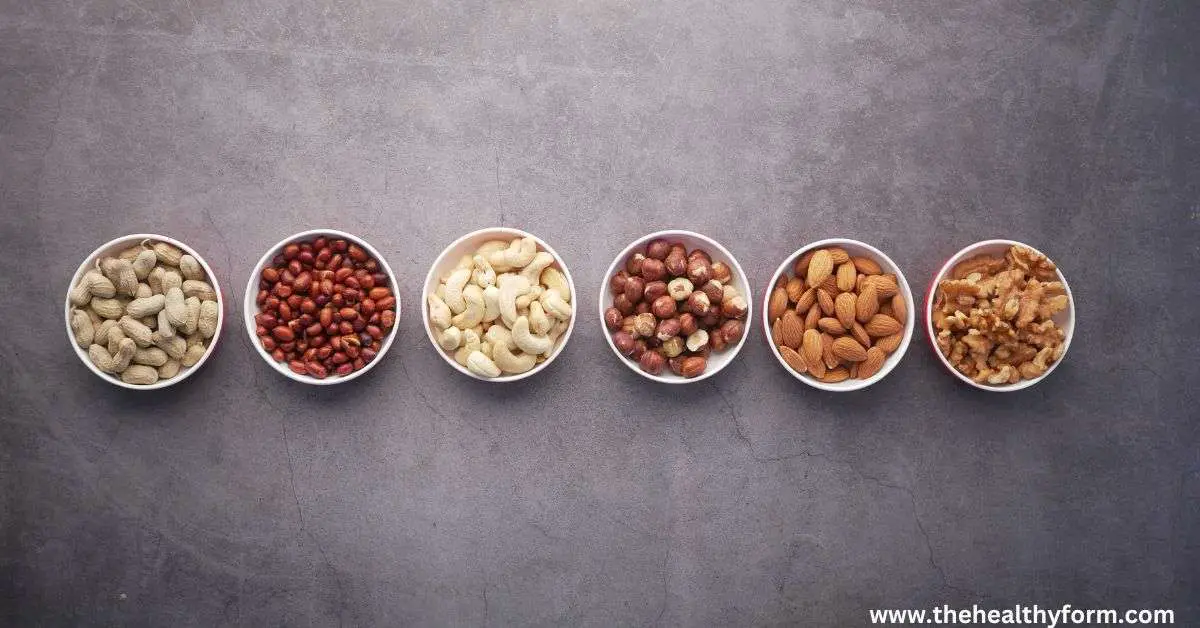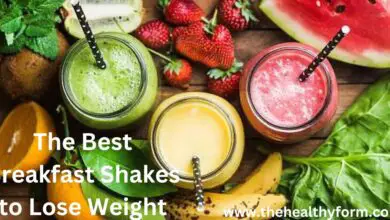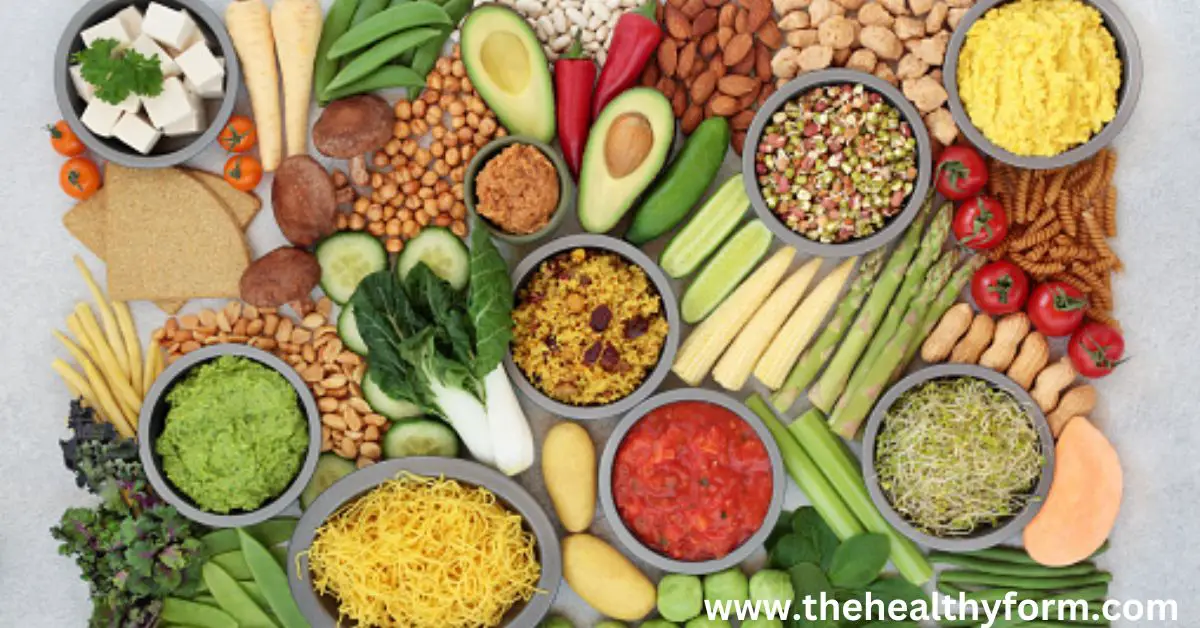Your Favorite Fruits Nutrition Facts
Learn about the fruits nutrition facts, including Avocado, Banana, Watermelon, Apple, Orange, and Mango. Discover their health benefits, vitamins, minerals, and how they can fit into your diet. Are you trying to find a way to meet your daily nutritional needs without having to cook complicated meals? Look no further than your local fruits! Eating fruit is one of the simplest and most delicious ways to add nutrition to your diet.
From apples and bananas to oranges and mangoes, there are so many varieties of fruit that you can easily mix up your daily meals. But do you know what you’re getting with each delicious bite? This article will help answer all your questions about the amazing nutrition facts of your favorite fruits.
You’ll surely learn something new about these nutritional powerhouses, even if you already snack on them regularly. Ready? Let’s dive in!

Banana Nutrition Facts
Bananas, the iconic yellow fruit everyone knows and loves, are a great source of nutrition! One medium banana can provide 10% of your daily Vitamin C, 17% of your daily Vitamin B6, and 5.3 g of dietary fiber.
The benefits don’t end there; bananas contain essential minerals like potassium, magnesium, and manganese. Potassium is known for regulating blood pressure and helping muscles work properly, while magnesium keeps our bones strong and is involved in over 300 bodily processes. Having a banana a day also comes with some other fantastic nutritional perks, such as:
- Enhanced heart health – Bananas contain antioxidants that fight free radicals that damage our cells. This helps protect your heart against cardiovascular diseases like high cholesterol and atherosclerosis.
- Improved digestive system – With all that fiber, bananas help promote healthy digestion and keep constipation at bay!
- Improved immunity – Bananas contain Vitamin B6, important in producing red blood cells and keeping your immune system firing on all cylinders.
In short, incorporated into a balanced diet and lifestyle, switching up your snacks for some sweet bananas could make a positive difference!
Avocado Nutrition Facts
Avocados are a powerhouse of nutrition and the perfect way to add a creamy texture and flavor to meals. Whether you’re looking for a way to spice up your breakfast taco or add it to your lunch salad, avocados come packed with nutrients that can provide important health benefits.
Here’s what you need to know: Avocados are packed with essential nutrients like vitamins C and E, potassium, fiber, and magnesium. They also have healthy mono- and polyunsaturated fats, which have been linked with reducing cholesterol levels. And because of the high fiber content in avocados, you’ll feel fuller for longer after eating them.
Avocados are also incredibly versatile – they can be used as spread on bread or toast, as a dip for vegetables or chips, mashed onto salads, or even blended into smoothies for an added boost of nutrition. So, next time you need some natural deliciousness, grab an avocado!
Watermelon Nutrition Facts
One of the tastiest summer fruits is the juicy, delicious watermelon. What’s even better is that watermelon isn’t just yummy. It’s also incredibly nutritious! Here are some of the nutrition facts about watermelon that you should know.
Vitamins & Minerals
Watermelon is a great source of vitamins A and C and potassium. A cup of diced watermelon delivers 8% of your daily value for vitamin A and 18% for vitamin C. It’s also a good source of lycopene, a potent antioxidant that can help reduce inflammation, promote skin health, and fight certain types of cancer.
Low Calorie
Watermelon is low in calories, with only 46 calories per cup (152 grams). This makes it an excellent choice for those looking to cut back on calories without sacrificing flavor. It’s also fat-free!
Fiber
Watermelon contains dietary fiber — around 1 gram per cup — which helps to support gut health and regularity. Fiber can also help to reduce hunger levels by keeping you full longer after meals.
Watermelon is delicious, loaded with vitamins, minerals, and fiber, and has virtually no fat or calories—making it an excellent addition to any healthy diet!
Apple Nutrition Facts
Eating apples daily is not just a popular catchphrase. It’s a good idea! Here are some important apple nutrition facts to help you make the most of snacking on this juicy fruit.
Calories
An apple contains about 80 calories, so you can snack without worrying about your diet.
Fiber
A single apple serves up about 4g of fiber. That’s around 15 percent of the recommended daily intake for adults. Eating just one apple daily can help regulate your bowel movements and keep your cholesterol levels in check.
Vitamins and Minerals
Apples come packed with vitamins and minerals to help boost your immune system and fight off illnesses like the flu or a cold. Eating apples regularly can give you vitamin C, which helps protect cells from free radical damage, as well as potassium, magnesium, and calcium.
Antioxidants
Apples contain antioxidants like quercetin and epicatechin, which have been linked with anti-inflammatory benefits that reduce damage to the body’s cells caused by free radicals. So snack away—it’s good for you!
Orange Nutrition Facts
Ready to get juicy? Oranges are one of the most popular fruits because they’re so sweet and delicious. But they’re also one of the healthiest fruits, so here are some orange nutrition facts you might not know.
Vitamins
Oranges are a great source of vitamins C and A, with one medium-sized orange containing around 65 mg of Vitamin C and 36 mcg of Vitamin A. Vitamin C helps to boost your immunity and protect against many illnesses. At the same time, Vitamin A supports healthy vision, skin, teeth, and bones.
Potassium
One of the benefits of oranges is their high potassium content — about 170 mg per medium-sized orange. Potassium helps to regulate blood pressure, heart rhythm, and hydration levels in our bodies. So, if you’re looking for a natural way to keep your heart healthy and reduce the risk of stroke or cardiovascular disease, oranges are a great choice!
Minerals
In addition to Vitamins C and A, oranges are rich in minerals like magnesium (helpful for bone health), phosphorus (bone health), and calcium (strengthens bones). Oranges also contain traces of other minerals like iron (transport oxygen throughout your body), zinc (immune system), and copper (metabolism).
So now you know — oranges aren’t just tasty treats — they’re nutrition powerhouses!
Mango nutrition facts
Mangos are probably one of the most delicious fruits out there. Plus, they offer some amazing nutrition facts. For example, mangoes contain beta-carotene, which helps your body process other nutrients and helps keep your eyes healthy. One cup of cubed mango contains 27% of your daily value of vitamin C and 11% of vitamin A!
Here’s a quick breakdown of the nutritional facts contained in one cup (165 grams) of cubed mango:
- Calories: 99
- Total fat: 0.3 g
- Sodium: 2 mg
- Potassium: 253 mg
- Total Carbohydrate: 25 g
- Dietary fiber: 3 g
- Sugar: 22 g
- Protein: 1 g
- Vitamin A: 1056 IU
- Vitamin C: 51 mg
- Calcium: 17 mg
With all these health benefits, it’s no wonder that mangos have become such a popular part of many diets worldwide!

Other Important Nutrients Found in Fruits
Did you know that the fruits you love to eat can also provide important nutrition? That’s right! Fruits contain essential vitamins and minerals which help to keep us healthy.
Vitamins
Some vitamins in the fruit include vitamins A, C, E, and B2. These vitamins are essential for a healthy functioning body and can be abundant in various fruits.
Minerals
Fruits are also great sources of minerals such as calcium, iron, zinc, magnesium, and phosphorus. Calcium is especially important for strong bones, iron is key for red blood cells, and zinc helps with the immune system. Magnesium helps with muscle contractions, and phosphorus is required for energy production.
Eating various fruits can help you get all these important nutrients in your daily diet. Fruits contain so much more than great taste—they have health benefits! So make sure to add some fruit to your plate today!
FAQ about Fruits Nutrition Facts
Some of the most common questions people have about fruit nutrition facts are:
What are the benefits of eating fruits?
Fruits are an excellent source of vitamins, minerals, fiber, and antioxidants, essential for maintaining good health. Eating fruits can help reduce the risk of chronic diseases such as heart disease, diabetes, and cancer.
How many servings of fruit should I eat per day?
The recommended daily intake of fruits varies depending on age, sex, and activity level. Adults should generally aim for 1.5 to 2 cups of fruit per day.
Are all fruits equally nutritious?
No, different fruits have different nutritional profiles. However, most fruits are nutrient-dense and offer a variety of health benefits.
Is it better to eat fresh or frozen fruits?
Both fresh and frozen fruits are nutritious, but frozen fruits may be more convenient and budget-friendly. Frozen fruits are also a great option when fresh fruits are out of season.
Do fruits contain sugar?
Yes, fruits naturally contain sugar in the form of fructose. However, the sugar in fruits is typically accompanied by fiber, which slows down the absorption of sugar into the bloodstream and prevents blood sugar spikes.
Can eating too much fruit be harmful?
While fruits are generally healthy, consuming excessive amounts can lead to weight gain due to their sugar content. Additionally, some people may be sensitive to certain fruits and experience digestive discomfort when consuming large quantities.
What are some low-sugar fruits?
Some low-sugar fruits include berries, melons, kiwi, peaches, and grapefruit.
Conclusion
With so much to learn about the nutrition facts of some of your favorite fruits, it’s easy to get overwhelmed! While no two fruits are the same, one thing is certain—each is packed with nutritional components that can be a great addition to any balanced diet. From the powerful antioxidants in apples to the high fiber content of bananas, there’s something for everyone.
So, when it’s time to enjoy your next piece of fruit, don’t forget to make it a two-for-one deal. Not only are you reaping the benefits from its natural goodness, but you’re also getting some insight into each fruit’s amazing nutrition facts.





